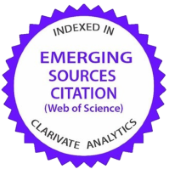Defining an Integrated and Computed Methodology Approach for Sentiment and Psychographic Analysis in Tourism Research
DOI:
https://doi.org/10.29036/jots.v13i25.393Keywords:
Big Five Factor model, Sentiment Analysis, Machine LearningAbstract
High-performance computational resources and artificial intelligence-based tools can enhance tourism research and marketing. However, a formal methodological approach using digital technologies in this field is still missing. This research work presents the preliminary results of defining an integrated computational methodology in tourism research and marketing. In addition, the paper aims to provide guidelines for a methodological approach leveraging technological resources and Big Data. The proposed research method is based on online User-Generated Content (UGC) analysis through a psychographic approach based on the Big Five Model, Sentiment Analysis, and Machine Learning techniques. The study is supported by high-performance computing resources, artificial intelligence-based tools, and open-source Python-based software for data collection, text analysis, and psychographic attribution. Results show a remarkable performance of the BFF prediction model and confirm the role of personality in the tourists’ decision-making and appreciation of a site. Future developments of this project involve using the acquired structured dataset labeled with sentiment and psychographic attribution to create a further prediction model on tourist segments and appreciation as part of a marketing strategy in tourism management. Future research should push forward the development of further integrated and performing computer-based methodology in tourism research and marketing, leveraging the massive amount of data and the potential of high-performance computing techniques. The main contribution of this research effort is twofold: the definition of a general-purpose BFF/Sentiment Analysis methodology and the development of a prediction model from online UGC based on the Big Five personality traits in the tourism research scenario.
Downloads
Downloads
Published
Issue
Section
License
Copyright (c) 2022 Journal of Tourism and Services

This work is licensed under a Creative Commons Attribution-NonCommercial-NoDerivatives 4.0 International License.
Journal of Tourism and Services (ISSN 1804-5650) is published by the Center for International Scientific Research of VŠO and VŠPP in cooperation with the following partners:
- Juraj Dobrila University of Pula, Faculty of Economics and Tourism, Croatia
- School of Business and Administration of the Polytechnic Institute of Setúbal, Portugal
- Szent István University, Faculty of Economics and Social Sciences, Hungary
- Pan-European University, Faculty of Business, Prague, Czech Republic
- Pan-European University, Faculty of Entrepreneurship and Law, Prague, Czech Republic
- University of Debrecen Faculty of Economics and Business, Hungary
- University of Zilina, Faculty of Operation and Economics of Transport and Communications, Slovakia
The publisher provides a free access policy to the Journal of Tourism and Services.





